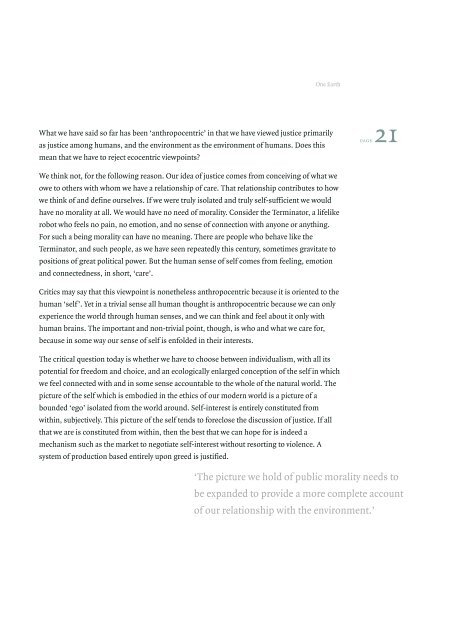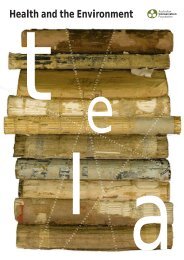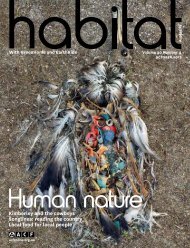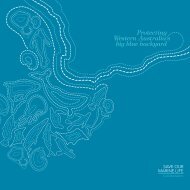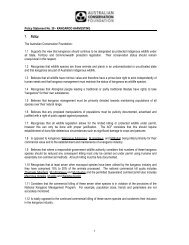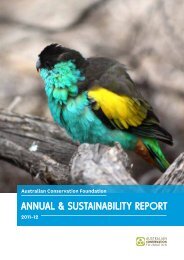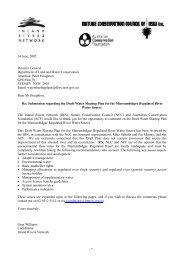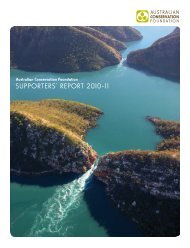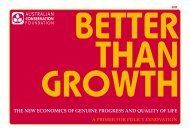Social & Environmental Justice - Australian Conservation Foundation
Social & Environmental Justice - Australian Conservation Foundation
Social & Environmental Justice - Australian Conservation Foundation
- No tags were found...
You also want an ePaper? Increase the reach of your titles
YUMPU automatically turns print PDFs into web optimized ePapers that Google loves.
One EarthWhat we have said so far has been ‘anthropocentric’ in that we have viewed justice primarilyas justice among humans, and the environment as the environment of humans. Does thismean that we have to reject ecocentric viewpoints?page21We think not, for the following reason. Our idea of justice comes from conceiving of what weowe to others with whom we have a relationship of care. That relationship contributes to howwe think of and define ourselves. If we were truly isolated and truly self-sufficient we wouldhave no morality at all. We would have no need of morality. Consider the Terminator, a lifelikerobot who feels no pain, no emotion, and no sense of connection with anyone or anything.For such a being morality can have no meaning. There are people who behave like theTerminator, and such people, as we have seen repeatedly this century, sometimes gravitate topositions of great political power. But the human sense of self comes from feeling, emotionand connectedness, in short, ‘care’.Critics may say that this viewpoint is nonetheless anthropocentric because it is oriented to thehuman ‘self ’. Yet in a trivial sense all human thought is anthropocentric because we can onlyexperience the world through human senses, and we can think and feel about it only withhuman brains. The important and non-trivial point, though, is who and what we care for,because in some way our sense of self is enfolded in their interests.The critical question today is whether we have to choose between individualism, with all itspotential for freedom and choice, and an ecologically enlarged conception of the self in whichwe feel connected with and in some sense accountable to the whole of the natural world. Thepicture of the self which is embodied in the ethics of our modern world is a picture of abounded ‘ego’ isolated from the world around. Self-interest is entirely constituted fromwithin, subjectively. This picture of the self tends to foreclose the discussion of justice. If allthat we are is constituted from within, then the best that we can hope for is indeed amechanism such as the market to negotiate self-interest without resorting to violence. Asystem of production based entirely upon greed is justified.‘The picture we hold of public morality needs tobe expanded to provide a more complete accountof our relationship with the environment.’


